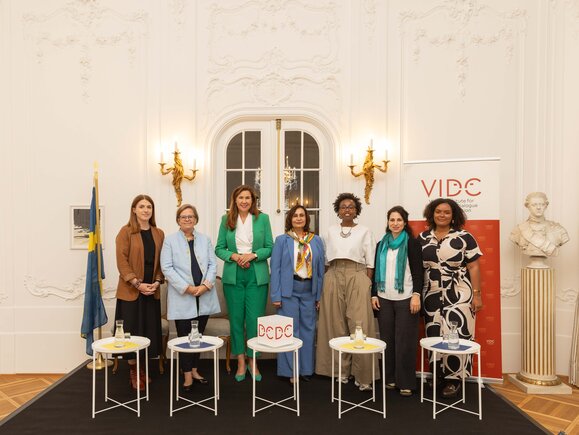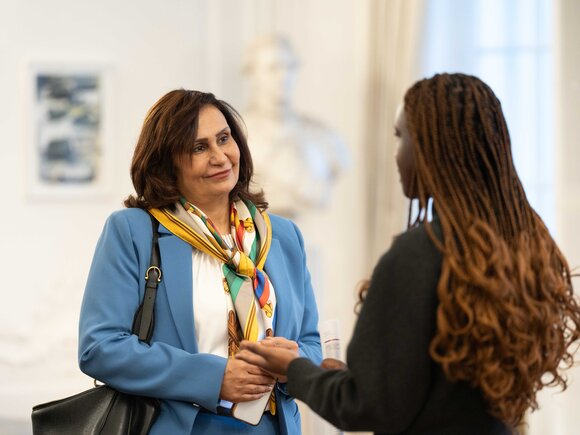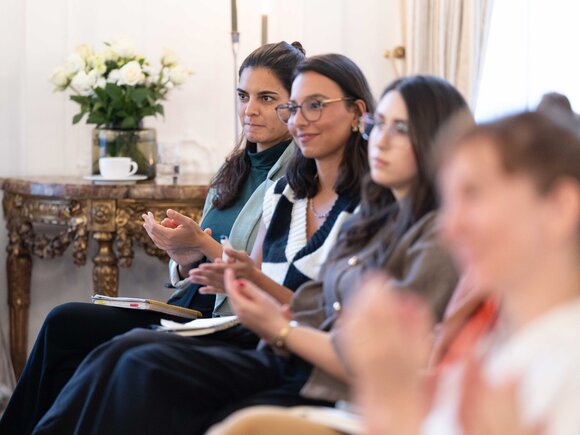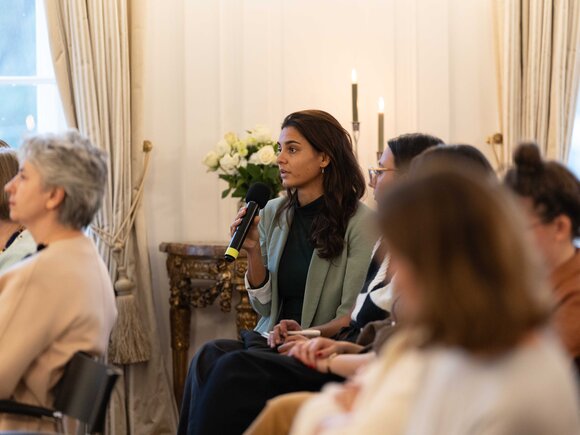Since the adoption of UN Resolution 1325 on Women, Peace and Security in 2000, significant progress has been made in recognising feminist approaches to conflict prevention and peacebuilding.
However, the implementation of feminist principles remains vague and accountability is often insufficient. For this reason, the VIDC, together with the Swedish Embassy in Vienna, organised a panel discussion with representatives from politics, international organisations and civil society on 10 September 2025. The aim is to promote dialogue between the Global North and the Global South, improve accountability in peace processes, and highlight the work of marginalised actors in shaping inclusive and sustainable peace.
Feminist peacebuilding and international law

Feminist approaches draw attention to previously invisible forms of violence and emphasise the need for conflict prevention. This includes holding perpetrators accountable and ensuring justice for survivors. A feminist understanding of international law contributes to peace being understood not only as the absence of war, but as a state of justice and sustainable social peace.
In 2007, Austria adopted its first National Action Plan for the implementation of Resolution 1325, thereby committing itself to measures based on feminist approaches at national, regional and international level. Julia Prummer from the BMEIA explained that Austria's foreign policy will continue to be dedicated to the Agenda on Women, Peace and Security, particularly in view of Austria's candidacy for a non-permanent seat on the UN Security Council in 2027-2028.
Peacebuilding and the fight against corruption
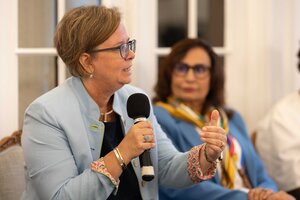
The UNODC report ‘The Time Is Now: Addressing the Gender Dimensions of Corruption’ shows that corruption has different effects on different genders. In particular, the report recommends designing anti-corruption measures in a gender-sensitive manner, collecting gender-differentiated data, and creating legal frameworks.
Protection of minorities in (post-)conflict societies
Legal scholar Dima Hussain highlighted the increase in violence against minorities in Syria and the impunity with which these acts are committed. Although the current government claims not to be involved in such acts, civil society reports indicate that the attacks on the ground are being led by the authorities, among others. For example, women are being attacked on the basis of both their gender and their religious affiliation. Despite these human rights violations, there is almost no support from the international community for these vulnerable groups, which only fuels the ongoing impunity. Afghan Ambassador Manizha Bakhtari also called for greater international support for the prosecution of Taliban crimes in Afghanistan and emphasised the need not to recognise the current Afghan government as legitimate. Furthermore, legal scholar Waruguru Gaitho drew attention to the connection between anti-gender actors, rising fascism, right-wing extremist movements and the lack of security for minorities. Despite these threats, queer activists continue to be at the forefront of resistance. However, long-term social peace also requires the support of state actors who actively oppose and take action against the global pushback.
VIDC in the media
More information about VIDC's work and our speakers can be found at VIDC media review.

